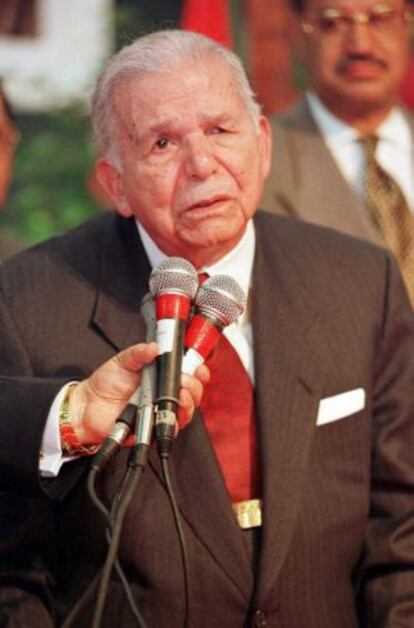Rights court rules against Dominican Republic
Government held responsible for disappearance of a journalist who denounced electoral fraud

The Inter-American Court of Human Rights on Tuesday ruled that the government of Dominican Republic was responsible for the 1994 forced disappearance of a journalist who had denounced electoral fraud, and whose case had been seen as a blow to freedom of expression in the Caribbean nation.
Narciso González was arrested by the military on May 26, 1994, the day after he publicly accused the heads of the army and police of helping a nearly 90-year-old President Joaquín Balaguer win re-election through fraud. Witnesses reported seeing González beaten up and in custody several days later. For years his family had demanded the government open an inquiry into his whereabouts but no investigation was ever carried out.
In its ruling, the IACHR ordered the Dominican government to investigate what became of González and punish those responsible for the disappearance of the 52-year-old journalist.
"This historic decision by the Inter American Court will be key in breaking the impunity that still exists on crimes committed during the [Rafael Leonidas] Trujillo regime and the legendary authoritarian Balaguer government," said Ariela Peralta, assistant director of the Washington-based Center for Justice and International Law (CEJIL), which helped bring the case before the IACHR on behalf of González's family.
In a separate statement, the Inter American Press Association (SIP) said it hoped that the government in Santo Domingo will soon open an official inquiry.
Tu suscripción se está usando en otro dispositivo
¿Quieres añadir otro usuario a tu suscripción?
Si continúas leyendo en este dispositivo, no se podrá leer en el otro.
FlechaTu suscripción se está usando en otro dispositivo y solo puedes acceder a EL PAÍS desde un dispositivo a la vez.
Si quieres compartir tu cuenta, cambia tu suscripción a la modalidad Premium, así podrás añadir otro usuario. Cada uno accederá con su propia cuenta de email, lo que os permitirá personalizar vuestra experiencia en EL PAÍS.
¿Tienes una suscripción de empresa? Accede aquí para contratar más cuentas.
En el caso de no saber quién está usando tu cuenta, te recomendamos cambiar tu contraseña aquí.
Si decides continuar compartiendo tu cuenta, este mensaje se mostrará en tu dispositivo y en el de la otra persona que está usando tu cuenta de forma indefinida, afectando a tu experiencia de lectura. Puedes consultar aquí los términos y condiciones de la suscripción digital.








































